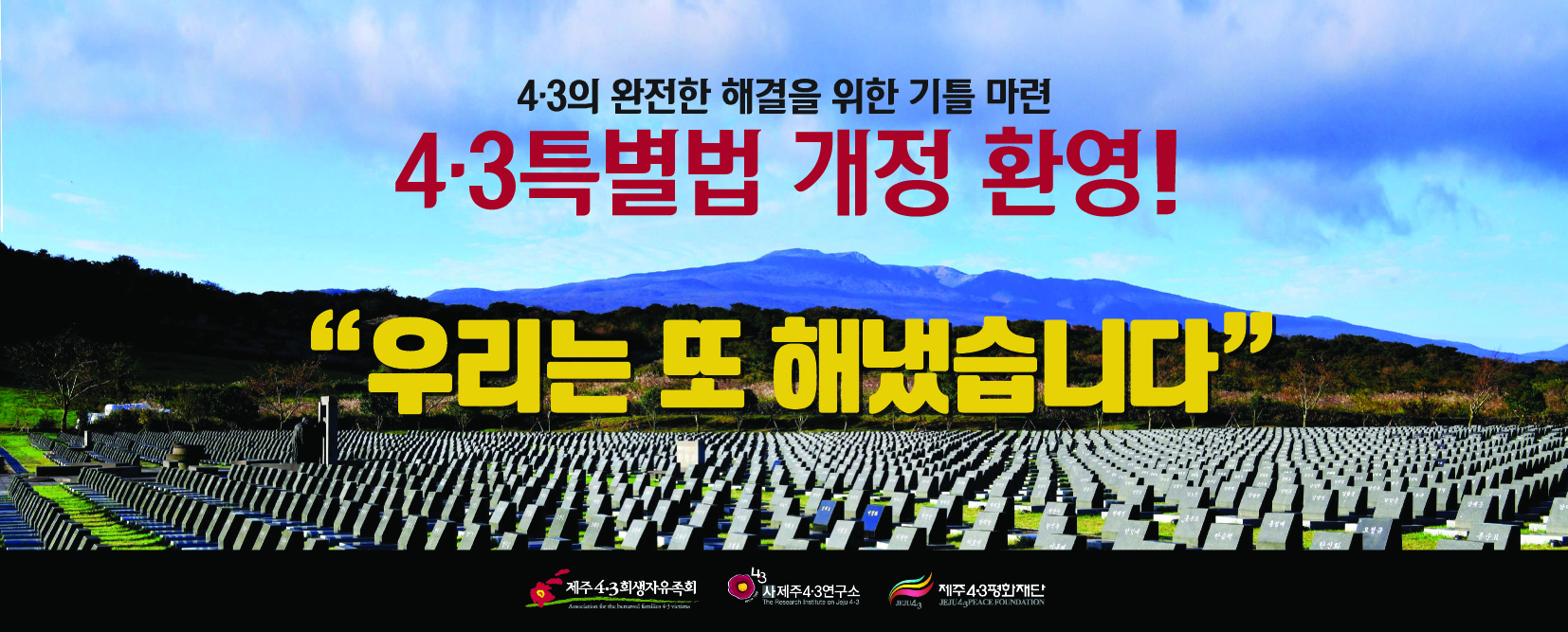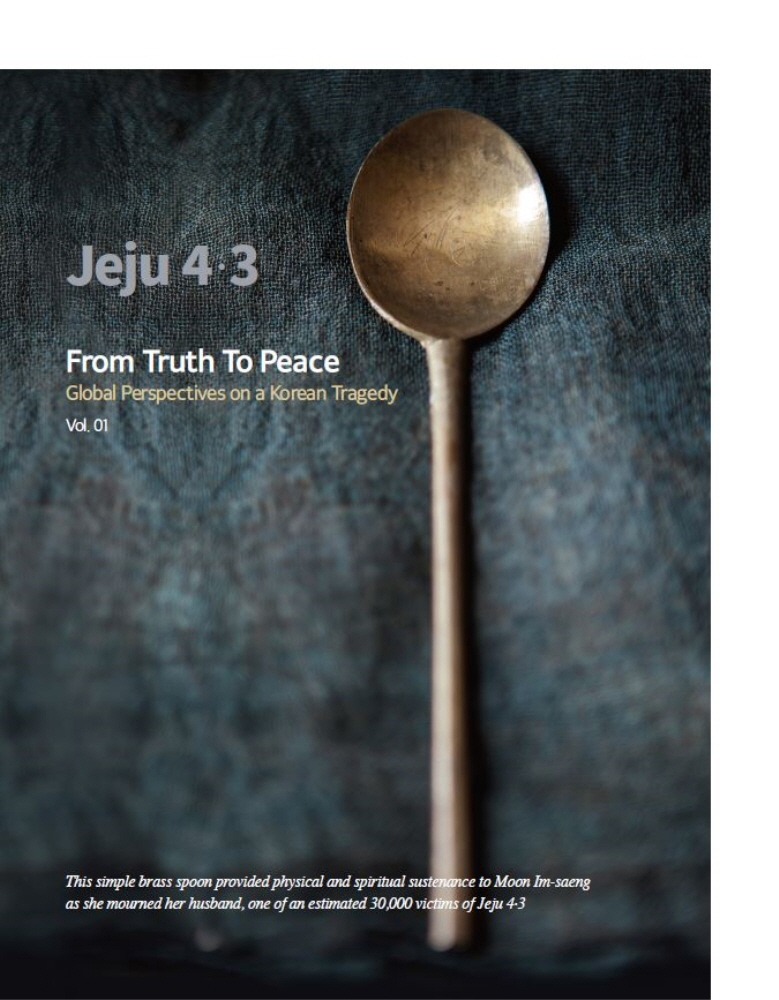Post-COVID lessons of Jeju 4·3 passed down from generation to generation
Choi Tae-seong (Byeol-byeol Korean History Institute)
When the day comes,
When the day finally comes
Samgak-san will stand up,
And dance a cheerful dance.
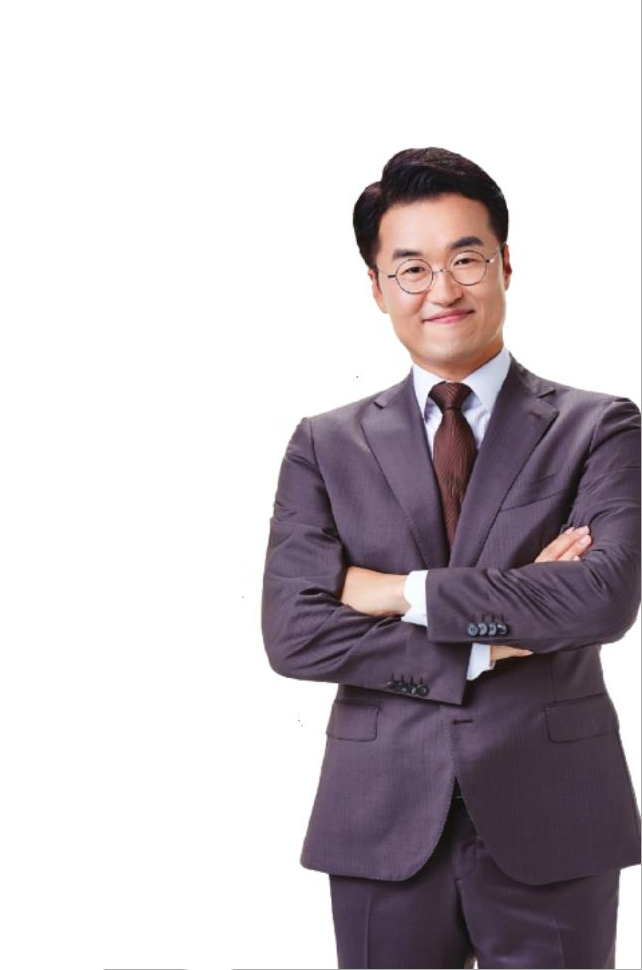
On Aug. 15, 1945, the day we craved finally came. However, that day came to us in a rather strange form along with the division of the Korean Peninsula. The Provisional Government of the Republic of Korea led by Kim Gu and the mass of citizens strived to prevent the division. Jeju 4·3 is located at the heart of this contemporary context.
Also, a lesson of Jeju 4·3 is how the life of a person or human rights could be disregarded and even discarded when ideologies come first. It is a living scene of human rights education where lives were lost, informing us that life comes before ideologies.
Jeju 4·3 resides within the painful contemporary history of Korea, bearing lessons of peace and human rights that must be shared with future generations to come. How will we be able to deliver such value properly? I would like to suggest visual experience as a method to change the style of Jeju 4·3 education as we enter a new era after COVID-19.
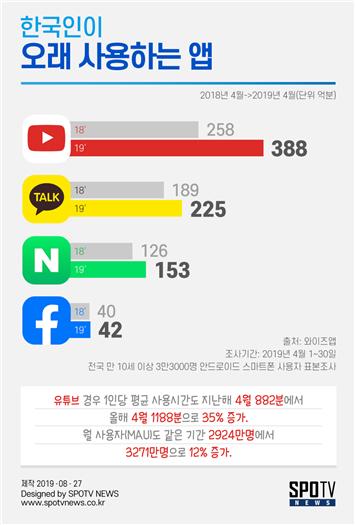
The entire globe is at war with the coronavirus pandemic. More than 30 million have been infected in the United States, including more than 500,000 people who have lost their lives to the disease. This truly is a global disaster. Some say that COVID-19 is a turning point in contemporary history, and, yes, in the education sector, this truly seems to be the case. We have witnessed students taking online classes at home instead of going to school due to the pandemic. The vision of future education, which seemed so distant and vague, came into our lives and suddenly became our reality. This led to an exponential growth in video-based online platforms as students turned to an online lifestyle. Students not only watch videos for schooling but also look for video feeds for entertainment. Video has become a crucial part of our lives now. Teenagers these days are sometimes called the video generation whose lifestyle is essentially bound to visual media. (See the graph on the left for a remarkable result for “text generation.”)
Elementary students even search information on YouTube rather than through Naver, a text-based platform, and this will become more and more universal. Furthermore, current video media are being augmented and are infiltrating our lives in other meaningful ways. Virtual reality (VR) is one of the representative examples, and now many of us have grown accustomed to it. Thoughts from the 20th century based on text may not be the best way to communicate with younger generations who live in the 21st century, and this is why we have to develop active responses to build a new style of Jeju 4·3 education using video media.
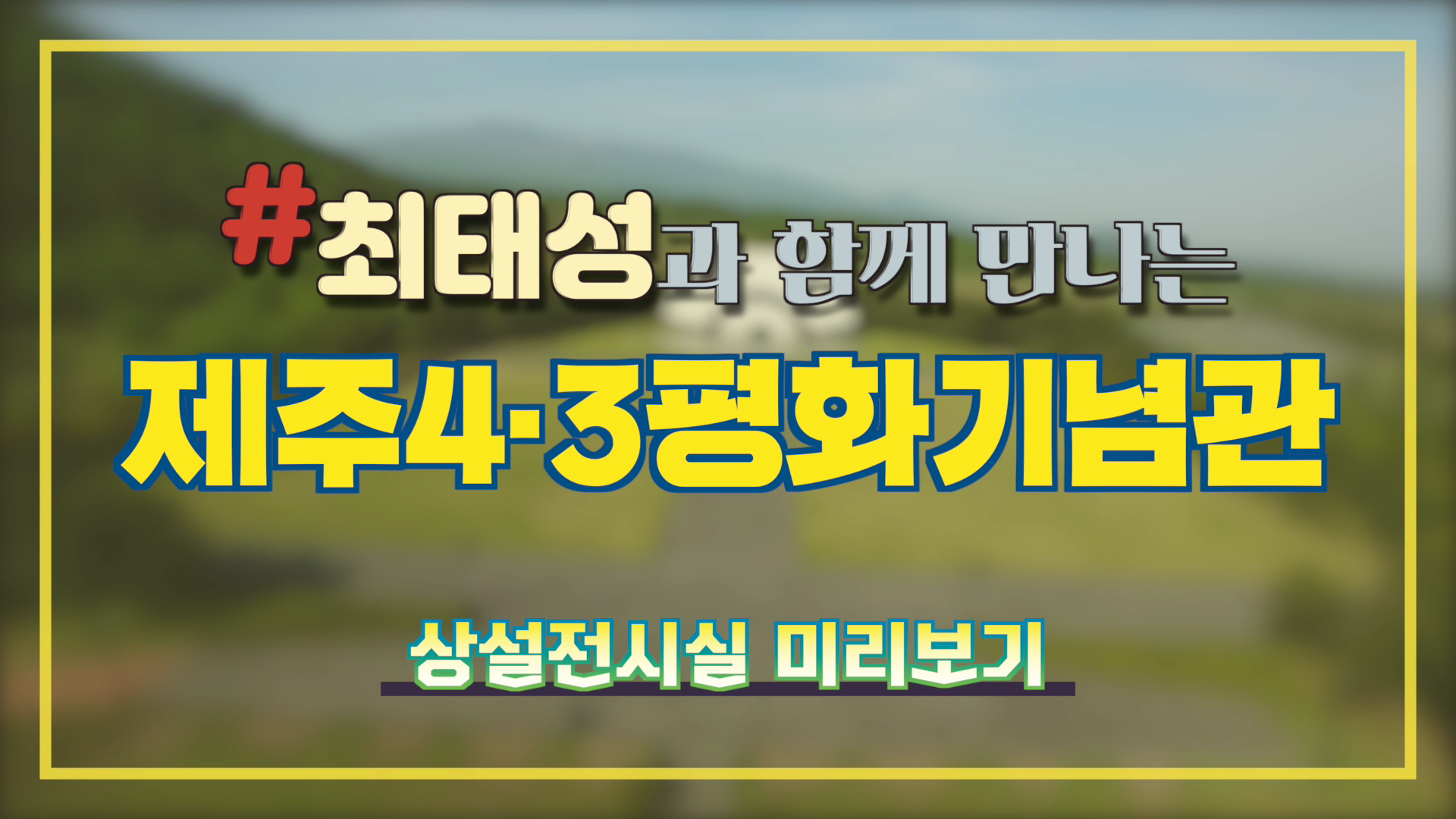
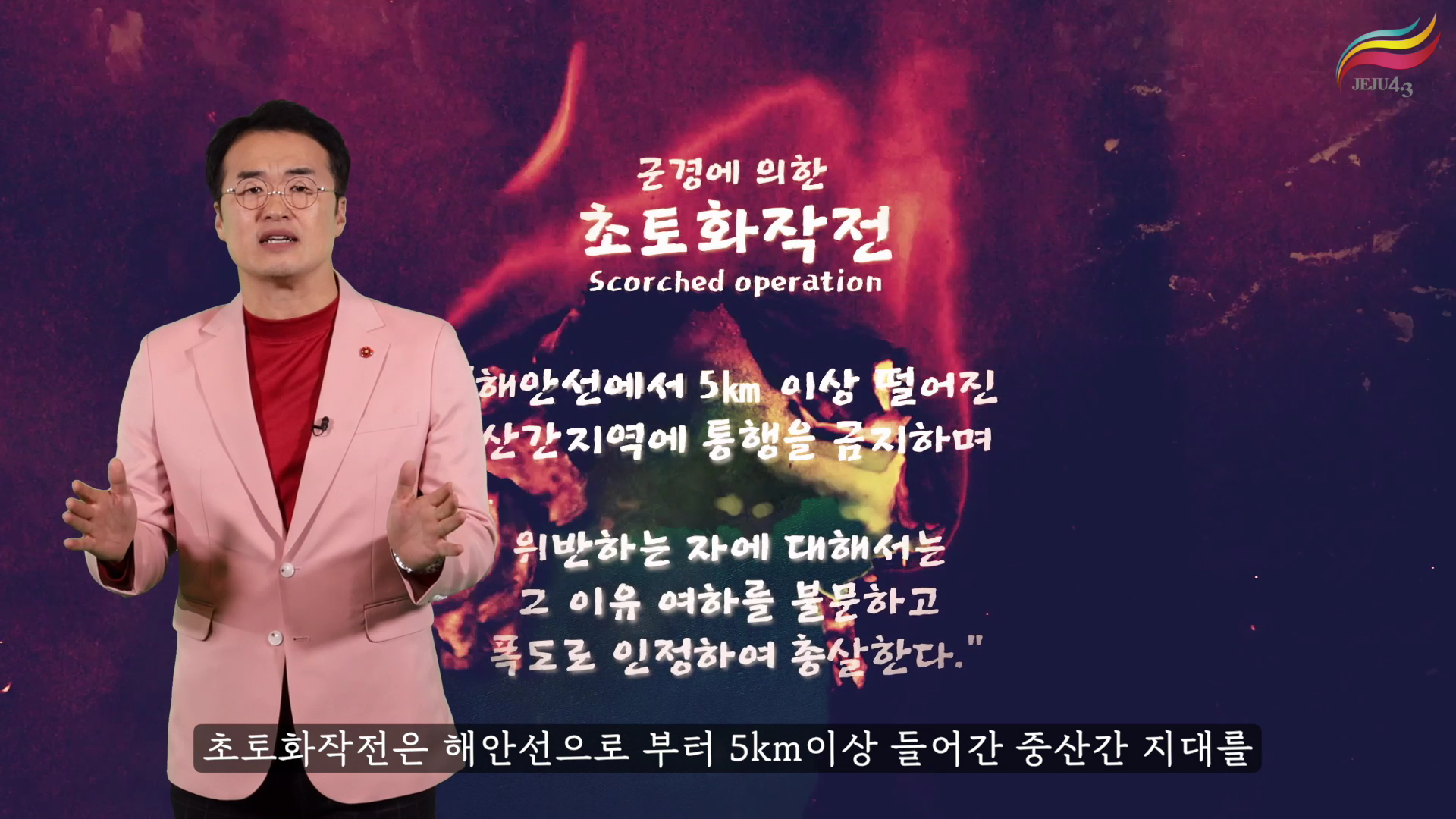
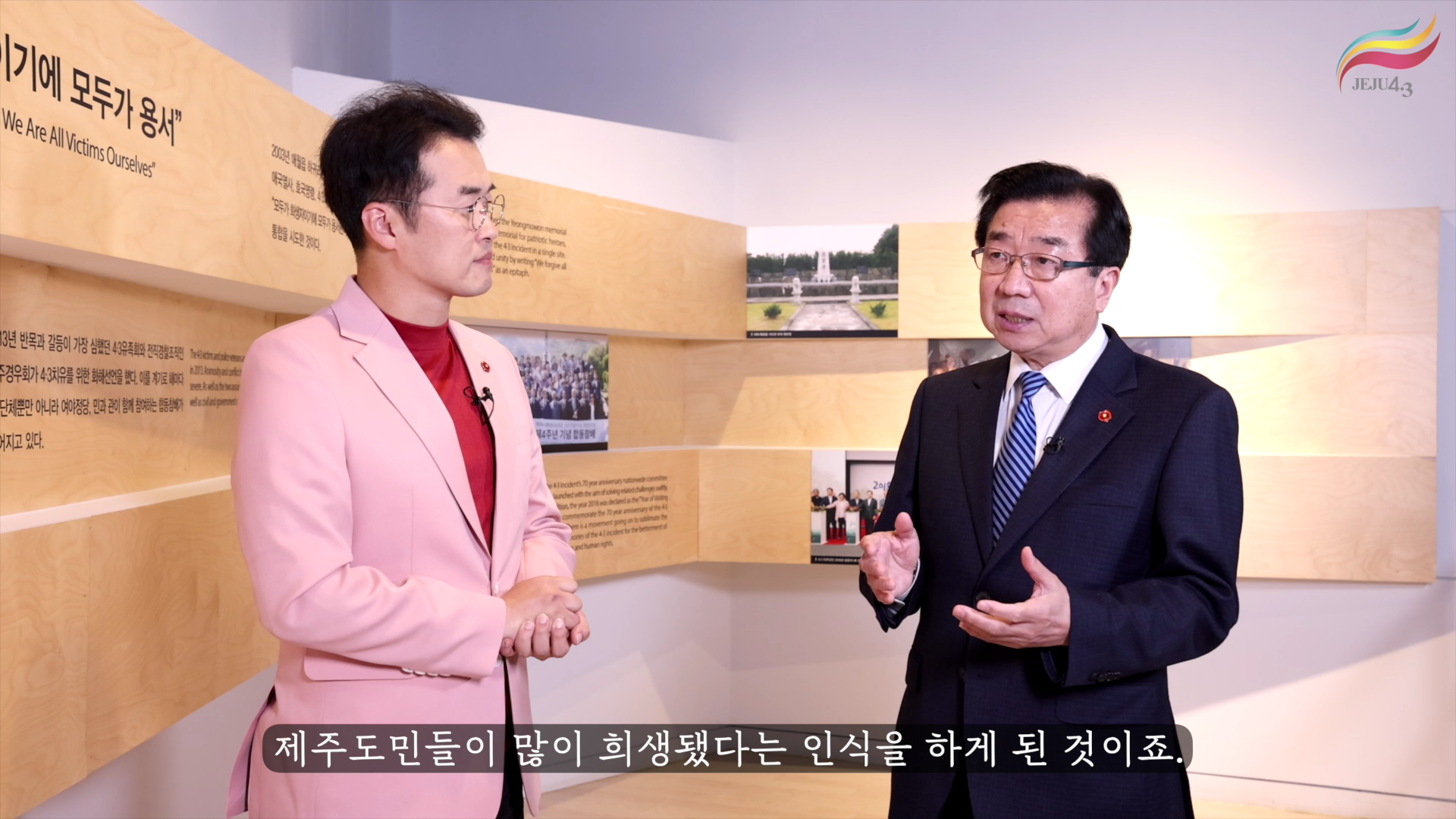
Manufacturing a New Commentary Video at Jeju 4·3 Peace Memorial Hall
The Jeju 4·3 Peace Foundation manufactured a video that guides the viewer throughout the entire Jeju 4·3 Peace Memorial Hall. The commentator in the video tells the viewer the historical progress of Jeju 4·3 and shares the meaning and lessons while touring through the hall. Upon visiting the memorial hall, most students spend time meaninglessly passing through the building. This is because they tend to regard history only as a product of the past. They only wish to be done with the trip not wanting to be bothered by a story that seems little related to themselves. However, when students are given even a handful of information about what the memorial hall is about, the venue is likely to become a place of knowledge and wisdom and even inspire in them possible questions to ponder. The new video can be showcased to students before they visit the Jeju 4·3 Memorial Hall. This will make the most of the students’ time. Additionally, I suggest that there be a Cyber Education Hall for Jeju 4·3 that students can gain access to anytime and anywhere to see what happened here more than 70 years ago.
Meanwhile, a video can not only become a one-way medium but a two-way mediator for communication. The technological advancement has allowed us to make a file in which a viewer is tagged along with a virtual commentator. The guide video manufactured can also be transformed to such a style so that viewers can be more familiarized with the topic. The virtual commentator of the video can be those who lost their families during Jeju 4·3, telling their own personal stories to students. The virtual commentators can follow the viewers whenever they are needed and help them out. That would be my suggestion.
Nevertheless, this type of learning by video is still passive, and we also have to think about what we can do to provide students with an active way of learning. From the beginning of human history, learning by experience has always been the beginning of all education. Life is, after all, learned. Experience-based learning will grow explosively after the COVID-19. Museums and memorial halls are places deemed suitable for learning through experience as they possess historical articles and objects on display. Therefore, these places have much work to do.
It is my hope that the memorial hall not only tells students the story of Jeju 4·3 but also affects their lives in return.
This can be done by the arrangement of items in display:
The weather on April 3, 1948; the air temperature; the atmosphere; what tools were used at the time of resistance and how they were made. The uncomfortable stay inside a model cave of Darangshi. What would they have sent to their friends in text messages if they had mobile phones at the time? How would they prepare food while taking refuge in the middle of the mountain? How about reproducing that food on their own? What would they have written in a letter if they had been able to send one to a friend on mainland Korea? What kind of content should be included in a memorial stone? How would students decorate the experience space if they were to curate a peace and human rights museum?
Once again, the final goal of a historical experience program is to connect history with one’s current life. We are educated because there are things we do not know, but more importantly because education helps us take action. Through the lessons of Jeju 4·3, I hope we and our future generations can get a clear idea as to peace and human rights and practice it. I also hope that the Jeju 4·3 Peace Memorial can be a place of inspiration and growth to students as they devise active responses that meet the eyes of our future generations.
